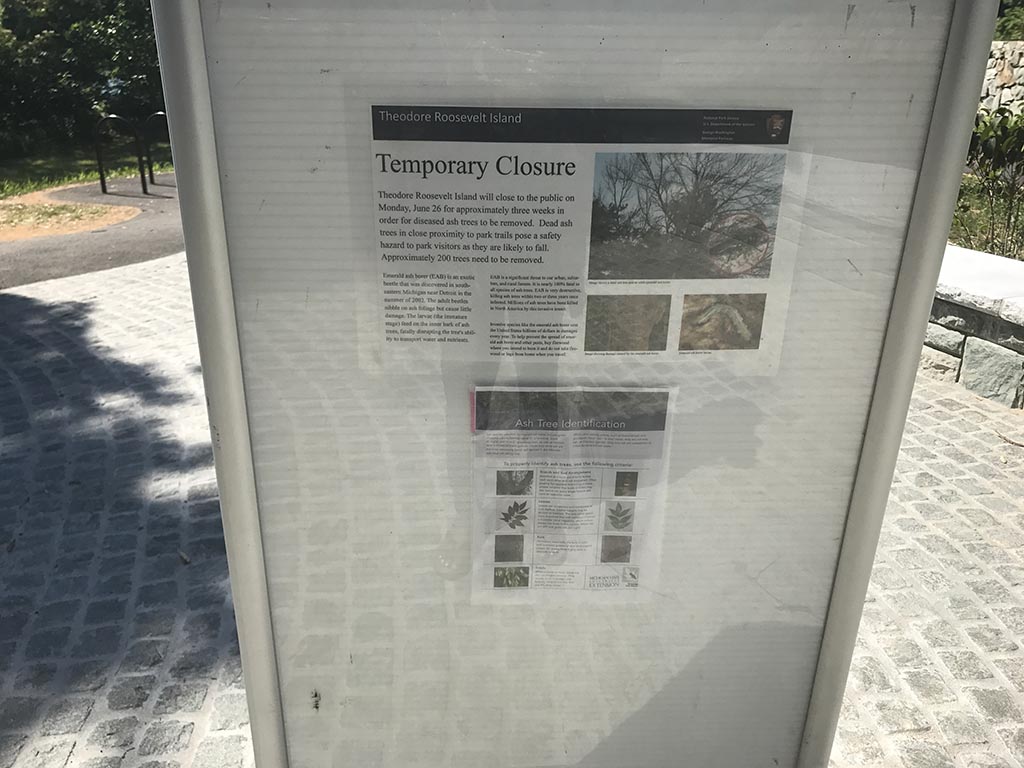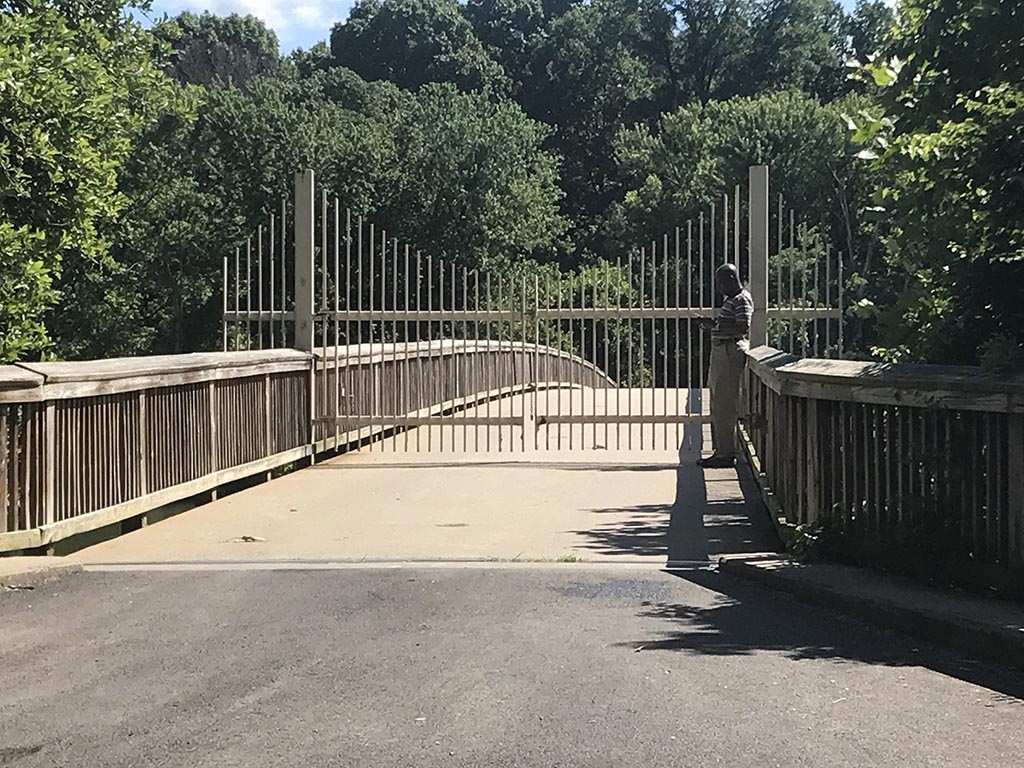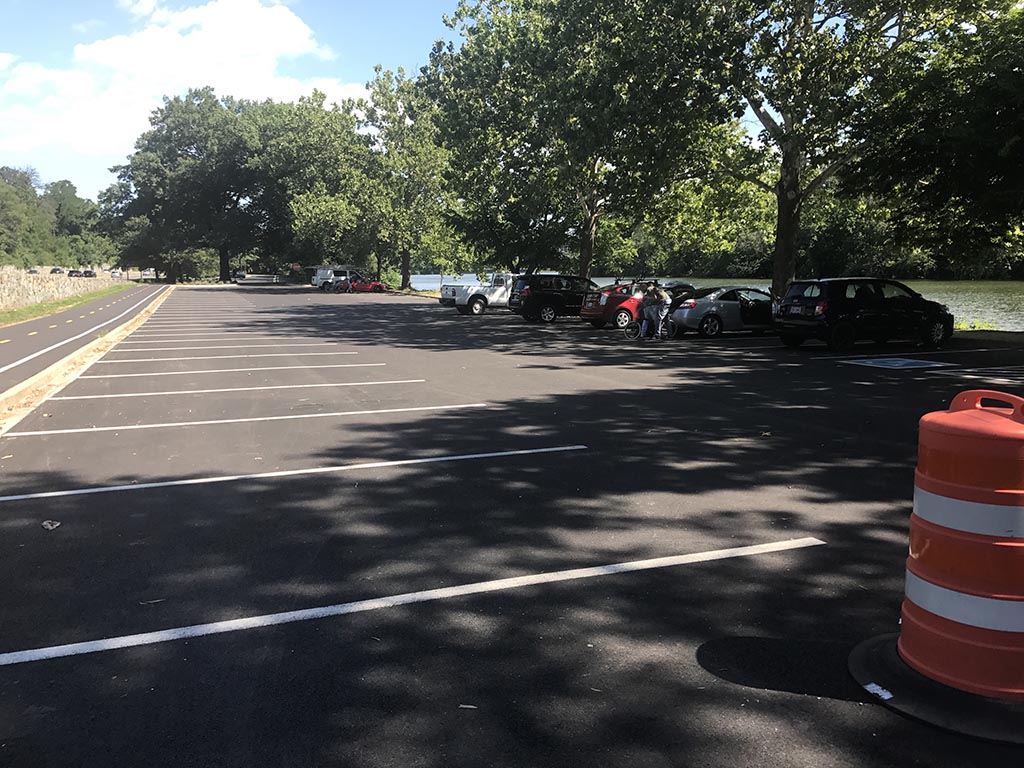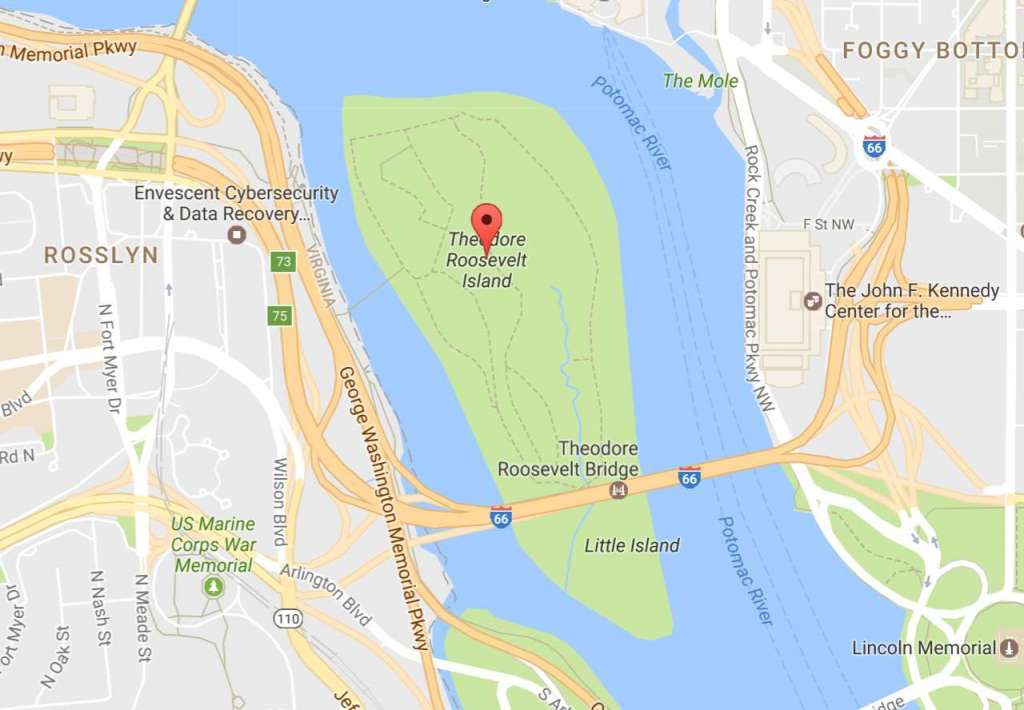Theodore Roosevelt Island closed for up to three weeks starting Monday while crews remove diseased trees from the nearby trails.
The National Park Service said the closures, which began yesterday, come after a survey found damage from the invasive emerald ash borer.
Sections of the island’s trails will reopen on a rolling basis as diseased trees are removed. NPS announced last week the island would close as the storms that hit the area could have brought down some of the diseased trees.
From a National Park Service press release:
Starting Monday, June 26, 2017, Theodore Roosevelt Island will be closed for the removal of diseased trees from along the maintained trails. As diseased trees are removed from sections of maintained trails, those sections will be reopened. Work is weather dependent and should last about three weeks.
A recent tree survey on Theodore Roosevelt Island found extensive damage to trees along the island’s trails from the invasive and deadly emerald ash borer. To facilitate the removal of these hazardous trees and reopen sections of the island more quickly, contracted services as well as park staff, will be working throughout the island.
Theodore Roosevelt Island is one of many parks in the Greater Washington Area hit hard by emerald ash borer. The island has many ash trees throughout its 88 acres that have been infected with the exotic beetle. The pest is highly destructive, killing ash trees within two to three years once infected. Dead ash trees rapidly become dry, brittle and hazardous. There is no known cure; once a tree is infected, it will die. Emerald ash borer is almost always fatal.
We are now more than 10 years into the emerald ash borer invasion of the National Capital Region. White ash was the tenth most common tree species in the region based on data collected between 2006 and 2009. In some areas of the region, the number of white ash trees decrease by a quarter between 2009 and 2016.
Rangers remind you to that you can do your part! To help prevent the spread of emerald ash borer and other pests, buy firewood where you intend to burn it, and do not take firewood or logs from home when you travel. Invasive species like the emerald ash borer cost the United States billions of dollars in damages every year.





